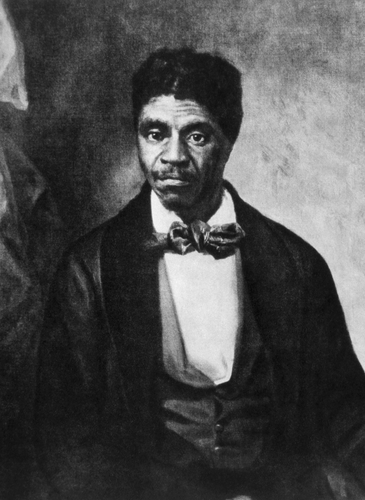March 6th stands as a beacon in history, illuminating a series of pivotal moments that have significantly shaped our world.
This article delves into 20 landmark events spanning centuries, from profound speeches and artistic triumphs to technological feats and poignant tragedies.
Together, these moments offer a mosaic of human achievement, struggle, and resilience, reflecting the diverse tapestry of our shared past and its enduring impact on the present.
March 6th Events in History
632 – The Farewell Sermon (Khutbah, Khutbatul Wada’) of the Islamic prophet Muhammad
The Farewell Sermon, also known as Khutbatul Wada’, was delivered by Prophet Muhammad during the Hajj, the annual pilgrimage, in the Uranah valley of Mount Arafat, present-day Saudi Arabia.
Also Read: March 5 – On this Day in History
This sermon is considered by Muslims to be a significant spiritual and ethical guideline, as Muhammad summarized the main aspects of Islam, emphasized equality among all Muslims, rights of women, and the sanctity of life and property.
It also included Muhammad’s declaration that he had completed his mission and conveyed the message of Islam to the world.
1475 – Italian Renaissance artist Michelangelo was born in Caprese, Italy
Michelangelo di Lodovico Buonarroti Simoni, known simply as Michelangelo, was born on March 6, 1475, in Caprese, a small village in Tuscany, Italy. He became one of the most influential artists in the Italian Renaissance, excelling in painting, sculpture, and architecture.
Some of his most famous works include the statues of David and Pietà, as well as the ceiling and The Last Judgment frescoes in the Sistine Chapel in Vatican City. His work demonstrated a blend of psychological insight, physical realism, and intensity never before seen.

1521 – Ferdinand Magellan arrived at Guam
Ferdinand Magellan, a Portuguese explorer leading a Spanish expedition, became the first European to reach the island of Guam on March 6, 1521. This encounter was part of his attempt to circumnavigate the globe.
The arrival at Guam was notable for the initial peaceful contact with the indigenous Chamorro people, which quickly turned sour due to misunderstandings and thefts.
Also Read: March 7th Events in History
Magellan’s voyage continued westward, eventually proving that the world could be circumnavigated, but Magellan himself did not complete the journey; he was killed in the Philippines in 1521.
1836 – The Alamo fell to Mexican forces led by General Antonio López de Santa Anna after a 13-day siege
The Battle of the Alamo was a pivotal event during the Texas Revolution. Following a 13-day siege, Mexican troops under President General Antonio López de Santa Anna reclaimed the Alamo Mission near San Antonio de Béxar (modern-day San Antonio, Texas, USA), killing most of the Texan defenders.
Notable figures such as James Bowie, William B. Travis, and Davy Crockett died in the battle. The defeat at the Alamo became a rallying cry for Texan forces (“Remember the Alamo!”) and is commemorated today as a symbol of heroic resistance against oppression and the struggle for independence.
1853 – Giuseppe Verdi’s opera “La Traviata” premiered in Venice, Italy
“La Traviata,” an opera in three acts by Giuseppe Verdi, set to an Italian libretto by Francesco Maria Piave, premiered on March 6, 1853, at La Fenice opera house in Venice. The opera is based on “La Dame aux Camélias” (1852), a play adapted from the novel by Alexandre Dumas fils.
The title “La Traviata” translates to “The Fallen Woman” or “The Woman Who Strayed,” and tells the story of Violetta, a courtesan who falls in love with Alfredo Germont. Themes of love, sacrifice, and societal norms are explored.
Initially, the premiere was met with mixed reactions, but it has since become one of the most beloved operas in the repertoire, admired for its melodic beauty and emotional depth.
1857 – The Supreme Court of the United States ruled in the Dred Scott v. Sandford case, stating that African Americans could not be American citizens
The Dred Scott decision, officially Dred Scott v. Sandford, was a landmark Supreme Court case ruled on March 6, 1857. Dred Scott, an enslaved African American man, had sued for his freedom on the grounds that he had lived with his master for several years in a territory where slavery was illegal.
The Court’s decision, delivered by Chief Justice Roger B. Taney, held that African Americans, whether enslaved or free, could not be American citizens and therefore had no standing to sue in federal court. Moreover, the Court ruled that the federal government had no power to regulate slavery in the federal territories acquired after the creation of the United States.
This decision added fuel to the already fiery national debate over slavery and is considered by many historians to have been among the catalysts for the American Civil War.

1899 – The Bayer company registered “Aspirin” as a trademark
On March 6, 1899, the German pharmaceutical company Bayer registered the name “Aspirin” as a trademark for its new over-the-counter medication. The active ingredient, acetylsalicylic acid, was synthesized by Bayer chemist Felix Hoffmann in 1897. Aspirin became the world’s first widely used antipyretic (fever reducer) and analgesic (pain reliever).
Its introduction marked a significant milestone in medical history, as it provided a reliable and effective treatment for pain and inflammation. Aspirin remains one of the most widely used medications globally for its therapeutic properties, including its role in reducing the risk of heart attacks and strokes.
1902 – Real Madrid C.F. was founded as Madrid Football Club
Real Madrid Club de Fútbol, commonly referred to as Real Madrid, was officially founded on March 6, 1902, making it one of the oldest football clubs in Spain. The club was originally named Madrid Football Club as the word “Real” (Spanish for “Royal”) was not bestowed upon the club until 1920 by King Alfonso XIII.
Over the years, Real Madrid has grown to become one of the most prestigious and successful football clubs in the world, boasting numerous domestic and international titles, including a record number of UEFA Champions League trophies.
1930 – International Unemployment Day saw several communistic states and communist parties lead protests in various countries
International Unemployment Day on March 6, 1930, was marked by protests and demonstrations organized primarily by communist parties and labor unions across the globe, particularly in Europe and the United States.
The day was a response to the global economic downturn and the resulting high unemployment rates following the Great Depression.
In several cities, these protests led to clashes with police, highlighting the social and economic tensions of the era. The event underscored the growing international movement for workers’ rights and the need for reforms to address unemployment and economic inequality.
1957 – Ghana gained independence from the United Kingdom, becoming the first sub-Saharan country in colonial Africa to do so
Ghana’s independence from the United Kingdom on March 6, 1957, marked a significant moment in history as it became the first sub-Saharan African country to gain independence from European colonial rule. This event was a crucial milestone in the decolonization of Africa and inspired independence movements across the continent.
Kwame Nkrumah, a leading figure in Ghana’s independence movement and its first Prime Minister and President, played a vital role in the transition.
Ghana’s independence was celebrated worldwide and signified a new era in African governance and self-determination, paving the way for other African nations to seek and achieve independence.
1964 – Nation of Islam’s Elijah Muhammad officially gave boxing champion Cassius Clay the name Muhammad Ali
On March 6, 1964, shortly after Cassius Clay won the world heavyweight boxing championship by defeating Sonny Liston, Elijah Muhammad, the leader of the Nation of Islam, publicly endorsed Clay’s conversion to Islam and granted him the name Muhammad Ali.
This name change was not just a personal milestone for Ali but also a significant cultural moment, reflecting the broader intersections of sports, religion, and the Civil Rights Movement in the 1960s.
Muhammad Ali’s conversion and name change symbolized his rejection of what he considered his “slave name” and an embrace of African and Islamic identity, influencing generations of athletes and public figures on issues of race, religion, and politics.
1967 – Joseph Stalin’s daughter, Svetlana Alliluyeva, defected to the United States
In a dramatic Cold War episode, Svetlana Alliluyeva, the daughter of the former Soviet Union leader Joseph Stalin, defected to the United States in 1967. She left the USSR, seeking asylum in the U.S., arriving first at the U.S. embassy in India before moving to the United States.
Her defection was a significant propaganda victory for the U.S. during the Cold War, as it was seen as a repudiation of the Soviet system by a member of Stalin’s own family.
Alliluyeva’s life in the West included writing two best-selling autobiographies, where she denounced her father’s legacy and the Soviet regime.
1970 – An artificial cardiac pacemaker was used for the first time
The first use of a fully implantable artificial cardiac pacemaker represents a pivotal moment in medical history.
On this date, the device was implanted in a patient to regulate the heartbeat. The development of the artificial pacemaker was a significant advancement in the treatment of cardiac arrhythmias, enabling patients with irregular heartbeats to lead more normal and active lives.
The technology behind pacemakers has evolved substantially since then, with modern devices being more reliable, durable, and sophisticated, capable of monitoring heart rhythm and adjusting pacing in real-time.
1975 – For the first time, the Homebrew Computer Club met in Gordon French’s garage in Menlo Park, California, marking the beginning of the personal computing era
The first meeting of the Homebrew Computer Club in March 1975 marked the beginning of the personal computing revolution. This club was a gathering of computer enthusiasts, hobbyists, and engineers who played a crucial role in the development of the personal computer industry.
Members of the club, including Steve Wozniak and Steve Jobs, founders of Apple Computer, shared ideas, schematics, and software, contributing to a culture of open information exchange that propelled the development of user-friendly computers for the general public.
The club’s legacy includes the inspiration it provided for the creation of the Apple I, one of the first personal computers.
1983 – The first United States Football League game was played
The United States Football League (USFL) kicked off its inaugural season on March 6, 1983, with the game between the Birmingham Stallions and the New Jersey Generals. The USFL was conceived as a spring and summer professional American football league, providing an alternative to the National Football League (NFL), which played its games in the fall and winter.
Despite securing television contracts and attracting some top talent, the USFL faced financial difficulties and legal challenges, leading to its cessation after the 1985 season. The league’s ambitious attempt to compete with the NFL is remembered for its innovations in the game and the impact it had on professional football.
1987 – The British ferry MS Herald of Free Enterprise capsized in about 90 seconds after leaving the Belgian port of Zeebrugge, killing 193
On March 6, 1987, the British ferry MS Herald of Free Enterprise capsized just minutes after leaving the port of Zeebrugge in Belgium, bound for Dover, England. The disaster occurred because the ferry’s bow doors had been left open, allowing a large volume of water to flood the car deck as the ship increased speed.
This tragic accident resulted in the deaths of 193 people. The incident led to significant changes in safety procedures and regulations for ferries, including mandatory installation of indicator lights and alarms to show the status of the bow doors, and the implementation of stricter international safety standards for ro-ro (roll-on/roll-off) ferries.
1990 – The SR-71 Blackbird made its final flight
The Lockheed SR-71 Blackbird, an advanced, long-range, Mach 3+ strategic reconnaissance aircraft developed by the United States, made its final flight on March 6, 1990.
This aircraft was known for its incredible speed and altitude capabilities, making it one of the fastest aircraft ever built. It set numerous speed and altitude records during its service life and played a critical role in gathering intelligence during the Cold War.
The final flight of the SR-71 from its operational base in Palmdale, California, to the Smithsonian National Air and Space Museum in Washington, D.C., marked the end of its service. The Blackbird’s legacy continues to influence the development of aerospace technology.
2008 – A female suicide bomber in Iraq killed 40 and injured 80 in the deadliest attack by a female suicide bomber up to that point
On March 6, 2008, a devastating attack by a female suicide bomber in Iraq resulted in the death of 40 people and injured 80 others.
The attack targeted Shiite pilgrims in the outskirts of Baghdad, as they were making their way to the holy city of Karbala for the religious observance of Arba’een, which marks the end of a 40-day mourning period following Ashura, the commemoration of the martyrdom of Hussein ibn Ali, the grandson of the Prophet Muhammad.
This incident was one of the deadliest attacks by a female suicide bomber at the time and highlighted the ongoing violence and sectarian strife in Iraq.
2013 – A suicide bombing at a security checkpoint in Pakistan killed 35 people and injured at least 78
The suicide bombing on March 6, 2013, occurred at a security checkpoint in the city of Karachi, Pakistan. The attack targeted a predominantly Shiite Muslim area, exacerbating the sectarian tensions in the region.
The bombing was part of a wave of violence against Shiite Muslims in Pakistan, who have been frequent targets of militant Sunni groups. The attack underscored the challenges Pakistan faces in dealing with internal security threats and sectarian violence.
2020 – The global number of confirmed cases of COVID-19 surpassed 100,000 according to the World Health Organization
On March 6, 2020, the World Health Organization reported that the global number of confirmed cases of COVID-19, the disease caused by the novel coronavirus SARS-CoV-2, had surpassed 100,000. This milestone highlighted the rapid spread of the virus, which was first identified in December 2019 in Wuhan, China.
The surpassing of 100,000 confirmed cases was a grim marker of the virus’s global impact, leading to widespread public health interventions, including lockdowns, travel restrictions, and the acceleration of vaccine development efforts. The pandemic has had profound effects on global health, economies, and daily life, marking a defining moment in modern history.
